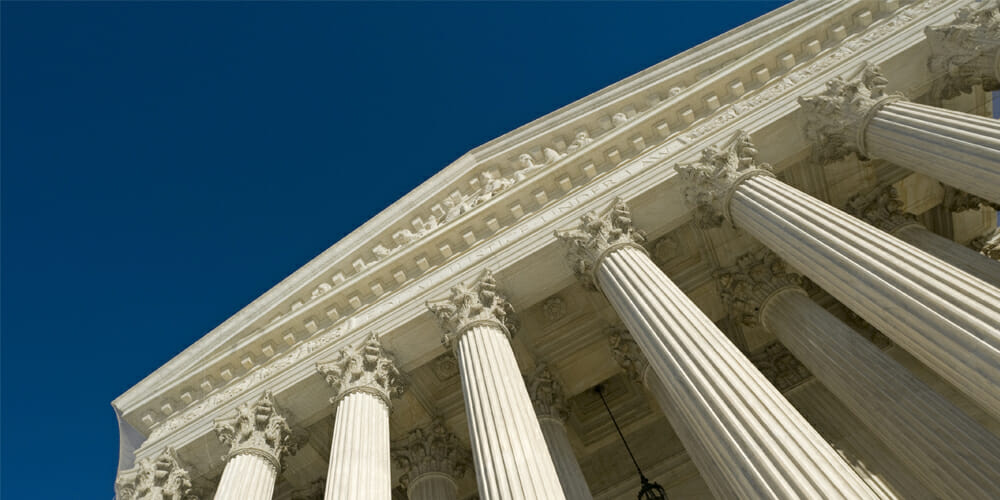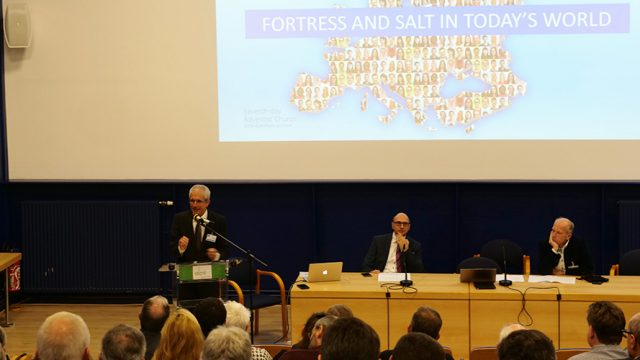For the first time in more than 30 years, the high court is likely to accept a Sabbath case.

“Walgreens doesn’t accommodate religious accommodations.”
That’s how Darrell Patterson’s supervisor at Walgreens described the company’s policy. Despite that very frank (and honest) assessment, despite the fact that Walgreens violated its own policies by firing Patterson, and despite the fact that Walgreens suffered no hardship from his not working on Sabbath, four judges in two different courts decided that Walgreens didn’t violate the law. Now in 2018, the U.S. Supreme Court is being asked to set this injustice right and clarify the law for all people of faith for the first time in more than 30 years.
Background
Darrell Patterson started working for Walgreens in 2007 at the company’s call center in Orlando, Florida. His job as a trainer, which he had been quickly promoted to after his hire, was normally conducted during regular business hours, even though the call center operated seven days a week, 16 hours a day. While Patterson had some Sabbath scheduling problems, for the first four years he was always able to resolve them.
In 2011, however, it became clear Walgreens wanted to make a change. Weeks before he was fired, the same supervisor who said Walgreens didn’t accommodate told Patterson that he needed to be “more flexible” with his schedule. This was troubling since the only time Patterson was not available was during the Sabbath. He reiterated his willingness to work whenever needed, except on his Sabbath.
A couple of weeks later, on Wednesday, August 17, 2011, Walgreens received a letter from the Alabama Board of Pharmacy. Walgreens operated another call center in Muscle Shoals, Alabama, and it had come to the attention of the pharmacy board that the call center handled prescription refills. Unfortunately for Walgreens, this violated Alabama state law. Employees needed to either be pharmacists or pharmacy technicians to handle refill calls. The call center employees were neither.
Despite being a multibillion-dollar corporation ranked nineteenth on the Fortune 500 list, of which the principal business activity is dispensing drugs, Walgreens was either ignorant of Alabama pharmacy law or willfully violating it. Having been caught by the Alabama authorities, Walgreens scrambled to transfer all the prescription calls to the Orlando call center before the Alabama authorities acted on their awareness of the situation.
On Friday afternoon, August 9, Patterson, while in the middle of teaching, was handed “emergency” training materials to facilitate the transfer, plus an assignment to work Saturday and Sunday morning. When finished teaching, he tried to call his manager to get coverage for the Sabbath assignment, but she was out of town and had left her cell phone at home. He also asked his fellow trainer to cover for him, but she had conflicting child-care issues.
On Sunday when he reported to work, he was told by his fellow trainer that she was now assigned the Sunday training. On Monday Patterson trained the people who were missed on Saturday. After completing this training, his employment was suspended pending an investigation of his Saturday absence. On Thursday he was fired for violating Walgreens’ attendance policy.
On the Case
Patterson should have prevailed in his discrimination case for a number of reasons. First, Walgreens violated its own attendance policy. The progressive discipline process did not call for termination until after “three strikes.” Even assuming his absence for one Saturday was a strike, it should have resulted in only a verbal warning.
Second, Walgreens experienced no hardship. Despite missing the training on Saturday, Walgreens still transferred all the calls to Orlando, as it had planned. Walgreens was not able to point to a single harm or customer service failure because of the delayed training. Further, Walgreens had other options besides Patterson to conduct the training on Saturday, including one supervisor who was specifically told not to cover the training for Patterson when she volunteered.
Despite the facts, Patterson lost both at the trial court and on appeal. What Walgreens argued, and the courts ruled, was that none of this mattered. All Walgreens had to do, the company said, was offer Patterson a job that reduced or mitigated his Sabbath problems, not eliminated them. Of course, for an Adventist, having to work fewer Sabbaths is hardly an accommodation at all. The court also ruled that because Walgreens might have another emergency or change in its staffing levels, Patterson’s inability to work on Saturday might cause a problem in the future and that was therefore an undue hardship.
Before losing his job, Patterson was offered a job at half the pay as a customer care representative. However, even this proposal came with the caveat that he might still be scheduled on Sabbath. Patterson was not interested in transferring to a job that paid less, had fewer responsibilities, and didn’t eliminate Sabbath problems.
In ruling as it did, the Atlanta-based appeals court created legal uncertainty. Different courts in the country have interpreted the law in different ways. Most courts have said that an accommodation must eliminate or resolve the conflict. Those same courts have also ruled that a hardship can’t be based on speculation about the future.
Protecting Religious Freedom
One of the Supreme Court’s primary jobs is to resolve these types of conflicts. While the court accepts only a small fraction of the cases litigants ask it to take, Patterson’s case has a reasonable chance of being heard. The Supreme Court has not addressed the issues in Patterson’s case since 1977 and 1986. With more than a 30-year silence on these issues and disagreements among lower courts, the Supreme Court is more likely to take his case.
Defending a case like this is neither simple nor cheap. Patterson was fired more than seven years ago, and attorneys have poured hundreds of hours into his case. His faithfulness along with the church’s support have set up the possibility for people of faith to be protected in the years and decades to come.








